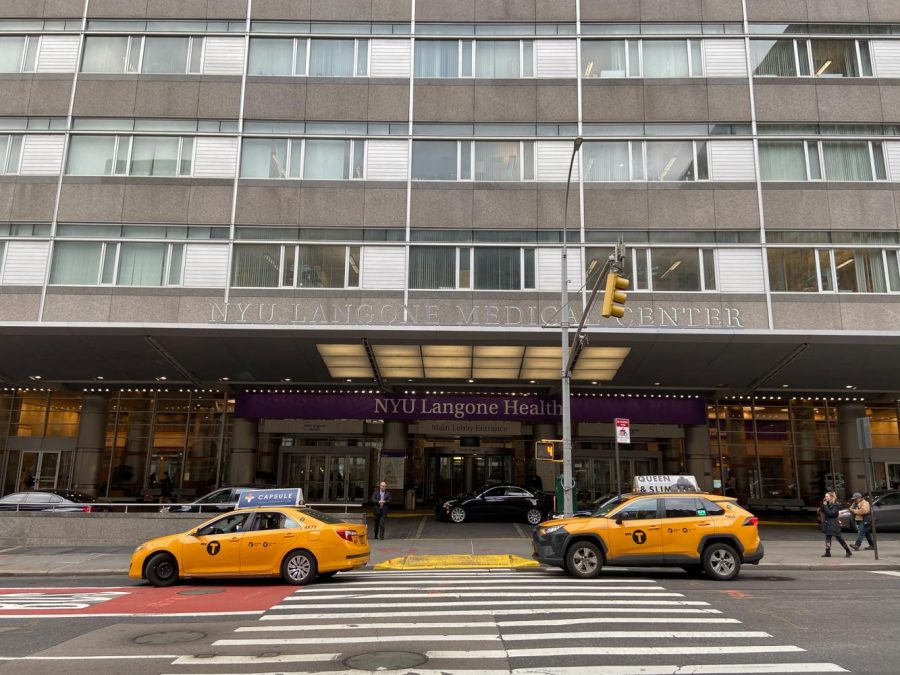After raising $10 million in donations, NYU Langone Medical Center will establish the Center for Psychedelic Medicine. The Center will be placed under the Department of Psychiatry. According to the press release, the new center will have three areas of focus: medicine, psychiatry and preclinical research.
The study of psychedelic medicine is not new. Researchers such as Humphry Osmond found promising results when using LSD as a treatment for alcoholism and mental illness in the early 1950s. However, the U.S. government made LSD illegal in 1968, stopping scientific research.
According to Dr. Michael P. Bogenschutz, the director of the Center for Psychedelic Medicine and a professor of psychiatry at the NYU School of Medicine, the center will focus heavily on developing therapeutic uses for psychedelics. It will also include a training program to support, develop, and coach students and faculty to become independent investigators in psychedelic medicine.
“The rapid pace of development, the new discoveries, and the wealth of important scientific questions that beg to be answered are exciting and inspiring,” Bogenschutz wrote in a statement to WSN. “The scarcity of funding has been frustrating, although that is changing rapidly.”
The center has already received more than $10 million in funding, including $5 million from MindMed, a neuro-pharmaceutical company focused on mental health, addiction, and psychedelic-inspired therapies and medicines. It also received $1 million from Carey Turnbull, the president of the Heffter Research Institute, a nonprofit organization that designs, reviews and funds studies on psilocybin at prominent research institutions.
George Greer, medical director of the Heffter Research Institute, said that partnering with NYU will help mitigate the risks that come with research into psychedelic treatment.
“[Psychedelic medicine] can be a powerful catalyst for healing serious mental health problems, including addictions,” Greer told WSN. “[But it] requires specially trained psychotherapists to screen for risks, prepare for the session, run the session and then do the integration therapy afterward.”
Turnbull told WSN that he chose to donate to the Center for Psychedelic Medicine due to his prior experience working with Langone’s department of psychiatry. He helped fund the 2016 Perlmutter Cancer Center’s clinical trial, which found that a single dose of psilocybin — the active ingredient in magic mushrooms — had a positive correlation with decreased anxiety and depression in patients with advanced cancer.
The Department of Psychiatry’s partnership with philanthropic organizations and nonprofits — intended to make the Center for Psychedelic Medicine’s innovations available to people in need — is what makes the center unique, Turnbull said.
Helen Redmond, an adjunct professor at the Silver School of Social Work, said she recognizes the importance of NYU’s involvement in psychedelic research. Redmond, who researches and writes about the War on Drugs, said she is thrilled that NYU established the Center for Psychedelic Medicine.
She hopes that equity is taken into account when it comes to deciding who receives treatments during clinical trials and in normal treatment settings. She believes there must be an emphasis on social and health justice so that access to psychedelics does not become similar to that of cannabis.
“I want to make sure that there are provisions for people who are uninsured to get this therapy and to get these drugs — that people who are unhoused, people who have mental health issues, that they get access to this medicine,” Redmond said. “Because as we know with medical marijuana, the prices are so high. People still go to the illicit market, and I don’t want to see that with psychedelics.”
Email Rachel Fadem at [email protected].

























































































































































